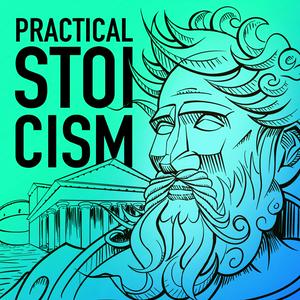Is Inner Peace the Goal of Stoicism? (Meditation 3.12)
In this episode, I walk through Meditations 3.12, where Marcus Aurelius claims that if we pursue Virtue with sincerity and without distraction, we will live “the blessed life.” But what does that really mean in Stoic terms? We examine what “blessed” refers to (spoiler: it’s Eudaimonia, or inner peace) and ask whether the Stoics pursued Virtue for its own sake or for the sake of that peace.
I argue that Virtue leads to inner peace by removing destructive emotions like anger, fear, shame, and grief—what the Stoics called the pathē. When we understand Nature and act in accordance with it, those emotions lose their hold on us. But that inner peace isn’t the goal of Stoicism—it’s a byproduct of doing the work of moral development for its own sake. That work is the point.
MEDITATIONS 3.12
“If you complete the present work, following the rule of right, earnestly, with all your might, with kindness, and admit no side issue, but preserve your own divinity pure and erect, as if you have this moment to restore it; if you make this secure, expecting nothing and avoiding nothing, but content with present action in accord with Nature and with heroic truth in what you mean and say, you will live the blessed life. Now there is no one who is able to prevent this.”
THREE TAKEAWAYS
— Virtue leads to inner peace: By eliminating destructive emotions through rational understanding, we create a calm mind and a steady heart.
— The pursuit of Goodness should be its own reward: Stoicism teaches us to seek Virtue not as a means to peace, but as the end in itself.
— Eudaimonia is a byproduct, not the goal: Inner peace naturally follows from living rightly, but it’s not what we should be aiming at directly.
Join The Society of Stoics at https://community.stoicismpod.com. Members enjoy ad-free episodes, weekly journaling prompts, a membership medallion, and access to regular live calls and discussions.
Get on the list: https://stoicismpod.com/list
Go ad-free: https://stoicismpod.com/members
Order my book: https://stoicismpod.com/book
Read Meditations source text: https://stoicismpod.com/far
Follow me on Bluesky: https://bsky.app/profile/tannerocampbell.bsky.social
Follow me on YouTube: https://stoicismpod.com/youtube
Learn more about your ad choices. Visit megaphone.fm/adchoices

